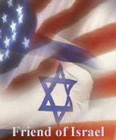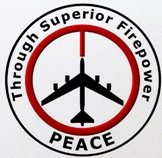I recently wrote a review of a book I have read: "Two Flags: Return to the Warsaw Ghetto" by Marian Apfelbaum. I submitted this review to the latest Jewish Blog Carnival. That is probably how a commenter by the name of Sultan Knish found me. His comment is 3rd there. He is a typical Jewish Conservative, with views very similar to my own. His blog is very good and nicely done. So it was very strange to read in his comment assertions typically coming from leftist Jews, not unlike frequent accusations of Christian Right of anti-Semitism. Although, I suppose I should not be surprised: I've heard many times from fellow Jews, including the ones from the former Soviet Union, who are usually on the Right, that anybody could potentially be an anti-Semite. So I would like to respond to his comment on the front page of this blog. I have to preface my response with this: Sultan Knish and I agree on more issues than we disagree on. In fact, we probably agree on almost everything. So this is a minor disagreement between friends (I am pretty sure we could be friends, had we met).
Sultan Knish begins his comment by asserting: "The Home Army was indeed anti-semitic". What is the basis of this assertion? Or, more to the point, what does it mean? Does it mean that Polish Home Army was an anti-Semitic organization, conducting anti-Semitic policies? Or does it mean that many its members were anti-Semites? Well, I have no doubts that many members of the Polish Home Army were anti-Semites. But so were many members of the US Army, and other Allied armies for that matter. Patton was known to say anti-Semitic things. But that does not make US Army anti-Semitic. As for the Polish Home Army policy regarding the Jews, that was most definitely not anti-Semitic. There is evidence that they did what they could under the circumstances. That includes evidence presented in the book I reviewed.
Sultan Knish also says that much of Poland was anti-Semitic. Again, it is true that anti-Semitism in Poland was rampant. But it is not fair to single out Poles for that. People often talk about Polish anti-Semitism, but forget about the Vichy French, who ran their own concentration cam in Drancy. People forget about Latvians serving in Arajs Kommando, Estonian SS Division, Lithuanian Nazis and Ukrainian SS Division. People forget about Dutch SS and Belgian SS. I am deliberately listing Nazis from the Allied countries. And those Nazis were quite numerous. So, in light of this, singling our Poles does not seem fair. Especially given the fact that among Righteous Gentiles Poles outnumber everybody else. This is really not surprising, since the Jews comprised about 10% of Polish pre-war population and since most of the Holocaust happened on Polish territory. But this also means that there were a lot of people willing to risk their lives to help the Jews, despite rampant anti-Semitism.
Finally, Sultan Knish brings up the notorious Kielce pogrom that happened after the war to prove general anti-Semitism of the Polish population. But there is no need to prove this: I agree that anti-Semitism was rampant in Poland. I mentioned that I read in a Russian-Jewish magazine an article that suggested that the Kielce pogrom was instigated by the Soviet intelligence (this is disputed in the Wikipedia link I referenced above). Even if that pogrom was indeed instigated by the Soviets, it does not mean that there were no Poles perfectly willing to kill the Jews in Kielce. Quite the opposite. The name of the magazine I read that article in is Alef (sorry, the link is in Russian). It is published by Chamah in New York. The author of the article was Vilen Lulechnik, a Jewish military historian from Russia, living in the US (sorry again, the link is in Russian again). But whether that pogrom was instigated by the Soviets or not, it is very hard to suspect the magazine and the author of the article in Polish nationalism. Suggesting that NKVD was involved in the post-war pogroms does not whitewash or excuse the original crime, but merely adds another set of criminals to already existing ones. Comparing my mention of an article in a Jewish magazine to Holocaust denial was a bit offensive (understatement here). It certainly was not my intent to whitewash the crimes of Polish anti-Semites. I am merely attempting to give credit where credit is due. Besides, the times have changed. After all, it was the Polish Members of the European Parliament who boycotted anti-Israeli anti-Semitic hatefest organized by UN. So, while condemning Polish anti-Semites, we should be grateful to those Poles who helped the Jews, who were and are on the side freedom, decency and Western Civilization.
Powered by Qumana

















No comments:
Post a Comment